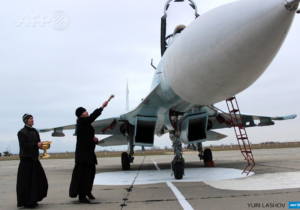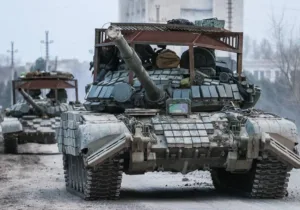Vladimir Putin failed to kill Alexei Navalny the first time but succeeded the second time. Navalny willingly acceded to his death by returning to Russia after he recovered in Germany from the first assassination attempt. He knew that imprisonment and likely death awaited him. Yet he seems not to have hesitated. Presumably, he understood that his martyrdom was necessary for the cause of eventual freedom in Russia.
“The world was not worthy of them,” the Book of Hebrews recounts about suffering heroes of faith. In an earthly sense, the same can be said of heroes of liberty like Navalny, who willingly sacrifice themselves in their struggle against despotism. At his 2021 trial, Navalny revealed:
The fact is that I am a Christian, which usually rather sets me up as an example for constant ridicule in the Anti-Corruption Foundation, because mostly our people are atheists, and I was once quite a militant atheist myself. But now I am a believer, and that helps me a lot in my activities, because everything becomes much, much easier. I think about things less. There are fewer dilemmas in my life, because there is a book in which, in general, it is more or less clearly written what action to take in every situation. It’s not always easy to follow this book, of course, but I am actually trying. And so, as I said, it’s easier for me, probably, than for many others, to engage in politics.
Navalny cited the beatitude from Jesus, “Blessed are those who hunger and thirst for righteousness, for they will be satisfied,” as the “most important political doctrine in Russia.” He appreciated its assumption that “power lies in truth, and that whoever holds the truth will be victorious.” He extolled a potential Russia where truth might prevail instead of only whispered. He hoped for a Russia where judges and prosecutors could operate independently of political control, where police needn’t crush the heads of demonstrators, where security agents aren’t called to poison regime opponents. He hoped Russia could be free but also rich and not corrupt with decent health care and education, with greater opportunity for all. But he cited Russia’s chief problem not the lack of freedom but her unhappiness, concluding:
We are a very unhappy country. We’re in a vicious circle of unhappiness that we can’t escape from…It’s not enough for Russia to be free, Russia should also be happy. Russia will be happy. That is all from me.
So Navalny died not just so Russia could be free but also fair, decent, peaceful, and even happy. It recalls Jefferson’s words in the Declaration of Independence: “We hold these truths to be self-evident, that all men are created equal, that they are endowed by their Creator with certain unalienable Rights, that among these are Life, Liberty and the pursuit of Happiness.”
Spirits like Navalny are extraordinarily rare. Many give their lives for their country in the armed forces in wartime. Dissidents living under tyrannies often risk their lives as they speak truth to power. Navalny survived an assassination attempt and survived thanks to German medical care. He could have lived thereafter as an international celebrity who spoke and wrote against Putin from a safe distance. And yet Navalny returned to Russia, knowing his likely fate. In this sense, he’s comparable to Dietrich Bonhoeffer, who could have stayed in America while he studied at Union Seminary. But he believed duty and Christian conscience required his return to Nazi Germany to contend against its evils, at great risk, resulting in his execution.
Another comparable is Benigno “Ninoy” Aquino, the Filipino statesman who resisted Ferdinand Marcos’s dictatorship. He came to America for surgery and remained, becoming increasingly outspoken against Marcos. He could have remained indefinitely, widely honored, safely giving speeches, and writing articles. Instead, he chose to return to the Philippines, believing his leadership was needed for the opposition. But he also anticipated his death. He was assassinated at the airport. In death Aquino was perhaps more effective than in life. His murder galvanized opposition to Marcos internationally and domestically. Marcos was compelled to call an election, which he lost, and whose results, under American pressure and street protests, he failed to resist. Aquino’s wife, Corazon, became president of a democratic Philippines.
Navalny’s wife, Yulia, like Corazon Aquino, has been his fearless political partner. Her outspoken defiance after her husband’s death suggests she will now be a leader in the resistance to Putin. Perhaps someday, like Corazon Aquino, she will even be president of her liberated country. Her husband’s martyrdom may ultimately achieve more than anything Navalny could have accomplished while alive, which he no doubt knew.
Of such heroes, like Navalny, Aquino, and Bonhoeffer, it can be said: “The world was not worthy of them.” And yet God sends us such sacrificial people to do His work on earth, that humanity might glimpse justice and live more in accord with Him. May we all in response try to be worthier of the gift.







 Sponsor a student for Christianity & National Security 2024
Sponsor a student for Christianity & National Security 2024